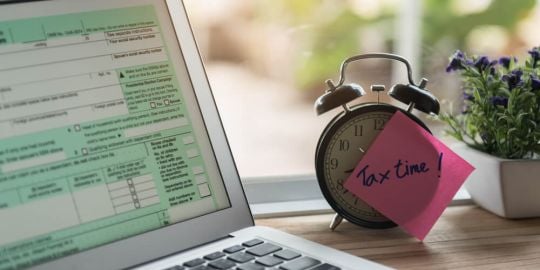I've recently considered spending part of more of my retirement in Vietnam, after having looked at the Philippines for a while.
I've just begun investigating the tax situation I'd face in VN. While I've found some info, I could use some clarification on certain issues, especially regarding anything impacted by any tax-treat rules between the U.S. and Vietnam.
My income situation is as follows:
- I get about $ 28K a month from SSDI in the U.S., which I can readily have deposited to an international bank if that's preferable to depositing it to a VN bank.
- I get about $12K/year in investment income (dividends, cap gains (average), and cap gains distributions).
From what I've read to date, I'd expect to be on a tourist visa for the foreseeable future after arriving, since I know little about retirement visas in VN.
U.S. taxation in my situation IRS federal taxation is fairly gentle due to favorable tax treatment granted to social security and investment income for retirees with modest incomes. However, I couldn't tell whether VN is similarly considerate.
From the sites I've reviewed so far, it wasn't clear to me whether someone physically resident in VN is a "resident" for tax purposes, if the retiree doesn't have a formal retirement visa.
It wasn't clear to me from the sites I've seen what tax level is imposed on investment income. (one site said that business income was taxes at 5%; another said that all income was taxed according to a progressive schedule).
Would appreciate any input from the board.
Estimating possible tax burden in Vietnam
You wrote that you “get about $28k a month from SSDI” — $336k/yr isn't modest income in the eyes of the IRS, or the eyes of anyone for that matter. Did you mean to say $28k/yr, or perhaps $2800/month?
Either way, you don't pay tax in VN unless you earn an income here. Your SSDI is from the States, your investment is in the States, so unless you decide to open a business (in VN), invest in a rental property (in VN), put your money in an interest-accrued account (in VN), etc, you'll not pay anything to the tax man here.
You'll still have to file Federal return no matter where you reside in the world.
There's no retirement visa in VN. Unless you're married to a Vietnamese citizen, a blood relative to a Vietnamese citizen, or a board member of a company doing business in VN, you'll never become a resident here. You can live here legally for as long as your visa allows, year after year, but not as a permanent resident.
Re: banking, it's still a long way before you need to think about where to keep your money. Don't bother planning for that now.
My bad: My SSDI is $28K a year.
You will have the same tax burden as you would in the US, federal and state tax. File online. If you keep property in the US you can have deductions, but probably deductions from a tiny tax is just tiny-er tax.
If you were to get employment in Vietnam, a flat tax is lopped off your take home pay, there is no income tax filing that I have heard about.
Vietnam beats the US. A flat tax is a far more advanced method of tax collection than the US. Just imagine: no 75000 IRS employees, or state tax employees, or ridiculous tax forms, or tax attorneys, or Turbo Tax, or lobbyists for every industry and group, less corruption, more predictability, more fair.
Though I wish Vietnam would tax the people more so they can finish infrastructure projects that go broke.








